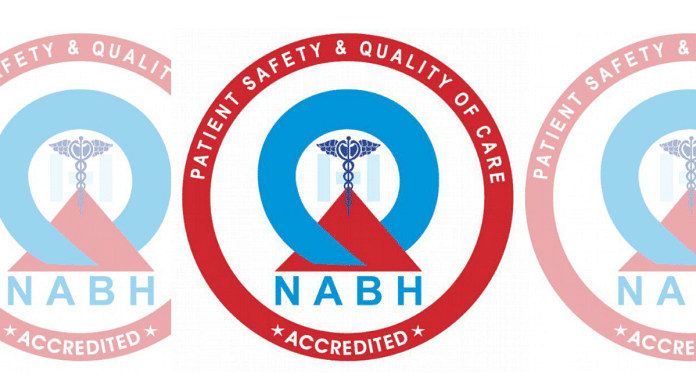New Delhi: For the first time, clinics and centres in the country that offer assisted reproductive technology (ART) techniques — which includes in-vitro fertilisation (IVF) services — will have the option to get accredited by the National Accreditation Board for Hospitals and Healthcare Providers (NABH), ThePrint has learnt.
A NABH official ThePrint spoke to said it has developed specific standards for these clinics and centres. Once accredited, these centres will be able to ensure quality and safety of their services to the patients.
According to industry estimates, India currently has around 2,500 ART centres but they lack a proper accreditation system.
Up till now, NABH did not have standards specifically devised for the procedures performed in ART clinics. Only one accreditation body, Quality and Accreditation Institute (QAI), had ART-specific standards in India, with a few centres opting for accreditation. NABH, though, will have more parameters to accredit ART clinics.
Atul Mohan Kochhar, Chief Executive Officer, NABH, told ThePrint that accreditation for ART centres have been developed along the same lines as hospitals but have been modified to include criteria specific to the sector, including safety and standards related to procedures, such as egg extraction, embryo processing and handling fertilisation.
“The norms are now ready and will be released soon,” confirmed Kochhar.
“These standards, apart from ensuring quality of services, will also require that all healthcare professionals and staff members have proper and extensive training so that they follow the appropriate procedure every time, ensuring uniform and best patient outcome,” Kochhar added.
The NABH, under the Quality Council of India, evaluates hospitals on more than 600 parameters that are divided into patient-centred or organisation-centred categories. Currently, nearly 840 hospitals in India are accredited by it.
These standards require hospitals to have a process-driven approach in all their functions — from patient registration, admission, pre-surgery, peri-surgery and post-surgery protocols, to discharge from hospital and follow-ups after discharge.
Hospitals also need to meet certain specifications related to infrastructure and human resources.
Welcoming the development, Dr Kshitiz Murdia, chief executive and co-founder of Indira IVF, said the accreditation is an extremely effective mechanism that promotes quality treatment and patient safety in a healthcare setting.
“It helps organisations to define standardised processes for patient safety, clinical care, medication safety, infection control, surgical safety, and facility safety,” he added.
Echoing Murdia, Shobhit Agarwal, chief executive of Nova IVF, too said that this is a welcome move for the clinics as well as for the patients.
According to Kochhar, ART clinics can also apply for entry-level certification via Healthcare Organisation Platform for Entry Level Certification (HOPE), a quality assurance of hospitals, which qualifies them for full accreditation. This two-tier accreditation system would also apply for ART clinics.
Under the Assisted Reproductive Technology (Regulations) Act, 2021, all ART centres are required to get registered under the government, apart from following rules related to services, infrastructure and manpower. Accreditation is one of the intents of the ART Act and will lead the industry towards standardisation.
“We are following the norms mandated under the Act and going a notch above,” Kochhar said.
‘Effective mechanism’
Speaking to ThePrint, Murdia highlighted that, so far, the NABH guidelines covered ambulatory care standards, and did not define critical ART processes.
“It is a turning point for ART clinics that the NABH has now developed specific standards for ART and IVF facilities,” he said.
Highlighting that the Indian ART sector has approximately 2,500 clinics at present, which is only expected to grow in the future, Murdia added that having ART-specific standards set by India’s premier accreditation body is a welcome initiative.
“This will be crucial to promote safety in IVF procedures and driving compliance with the new ART regulations,” he said.
Agarwal from Nova IVF told ThePrint that the accreditation will not just help clinics improve their quality standards but help patients identify the right clinics.
“As a clinic, these standards set guidelines for us and enable us to improve continuously apart from demonstrating our commitment to quality and patient care,” Agarwal said.
From the patients, accreditation will boost trust in them that the clinic is meeting high standards of quality care and safety, Agarwal said. “This will further boost the trust and build confidence among the couples opting for fertility treatment,” he added.
(Edited by Richa Mishra)
Also Read: 11% Indians diabetic, 36% have hypertension, says pan-India Lancet study on lifestyle diseases



